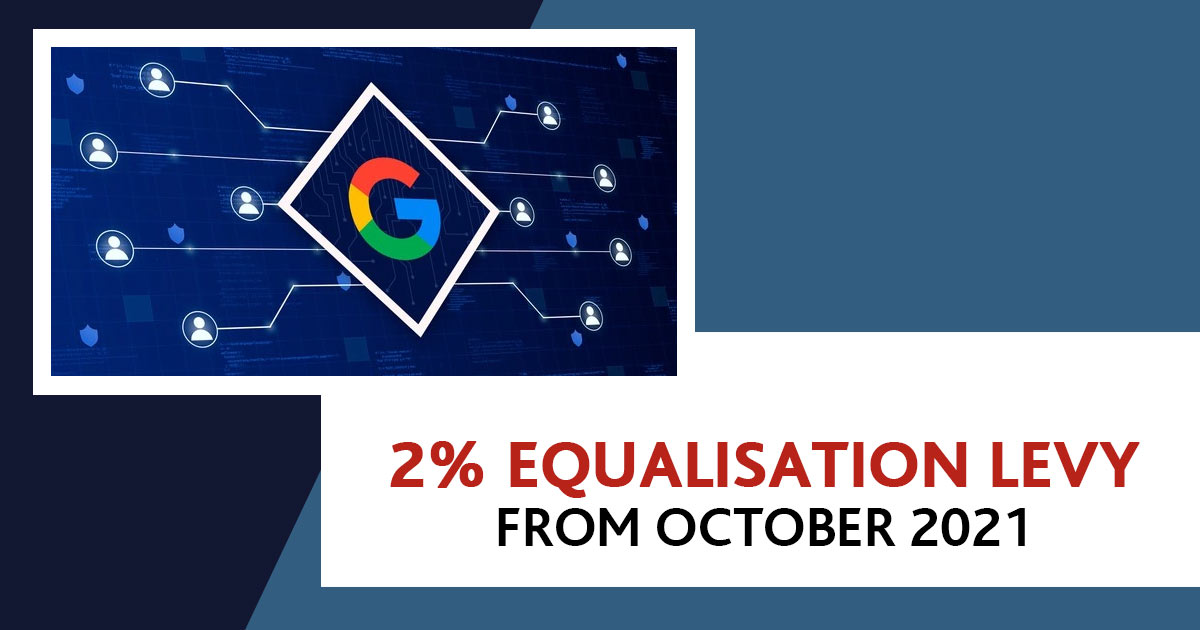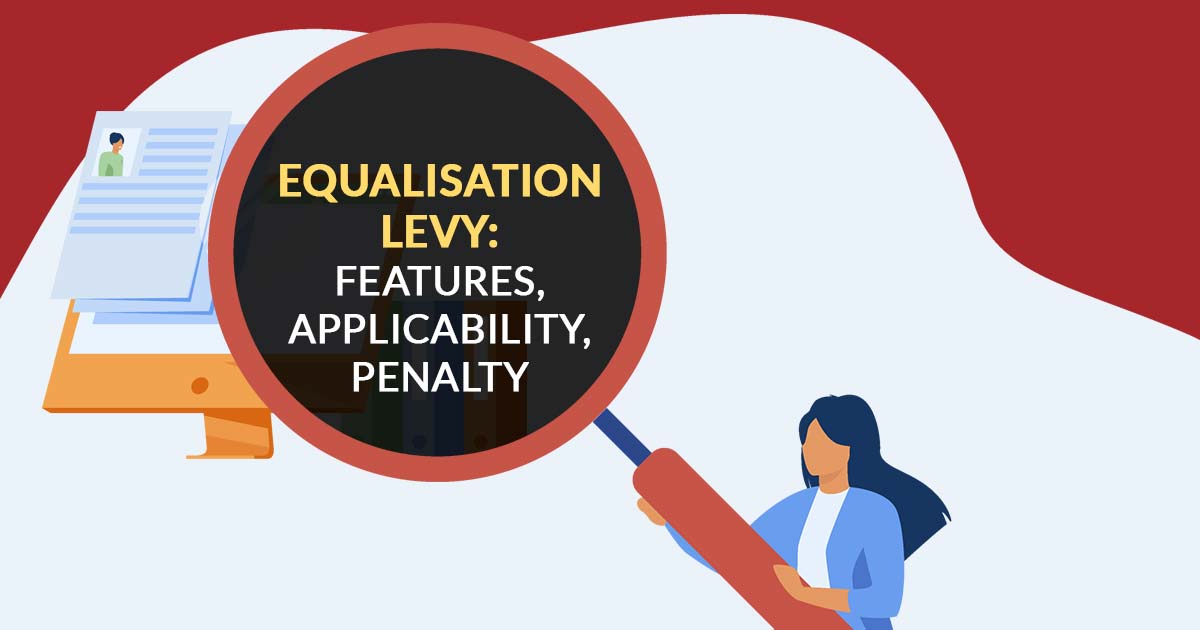
This is surprising and complicated too specifically for advertisers of Google. The digital giant Google shall pass on ‘India’s 2% Equalisation levy’ that was initiated in April 2020 applicable to those clients of Google whose advertisements are being visible in India effective from the month of October of this year. More importantly, this levy is applicable even in those cases wherein both the buyer and seller have not been based in India and the advertisement is seen/visible in India.
Recently, this news was released by Google to its clients and called this imposition a “jurisdiction-specific surcharge.” In the year 2020, the Government of India had augmented the scope of the equalisation levy 
“From 1st October 2021, we’ll be adding a surcharge to the invoices we send to non-Indian customers whose ads are viewed in India. The surcharge is to cover part of the costs associated with complying with the Indian Equalisation Levy, which only impacts non-Indian advertisers. We will continue to pay all the taxes due in India and elsewhere, a Google spokesperson said, responding to an ET query.”
The new regulation defines an online sale of goods and services 
- Any purchase that is made online or online payment or even the online offer that has been accepted via online mode.
- The 2% tax shall be applicable even in the cases wherein only a small part of the transaction was done online and the rest was done offline.
- The new law is creating a dilemma for several Indian subsidiaries of multinationals. The reason being the Government of India has broadened the scope of the equalisation levy without making a clarification as to what exactly comes within the domain of e-commerce or online transaction.
Consequently, many firms are distressed that all kinds of transactions including hotel software purchases, bookings and moreover purchasing certain components from overseas will come within the domain of tax.
On the other side, legal experts opine that the way in which the law is worded even Enterprise Resource Planning seems as if it is within the purview of online platforms and consequently tax. Moreover, experts said the Google’s interpretation may imp[act several other companies too
Next Step of Google
Google is ready to take the next step — Even in the transactions wherein neither the buyer nor the seller has been Indian, tax shall be applicable if the advertisement can be seen/ is visible in India. As per Tax experts, since the aforesaid stand has been taken by Google, it will complicate the matters of the Multinational Companies operating in India In the near future. As an illustration, if a New Zealand company visiting a hotel in Mumbai purchases something from the Google App Store while using the wi-fi of the hotel, this transaction shall be subject to taxation.
“The way the equalisation levy law is worded, almost every transaction that happens on the internet could potentially face the tax. Also, many companies are relooking at their existing structures to see if they can park the India specific activity in a separate domestic entity to avoid complications around equalisation levy, a senior lawyer told ET.”








